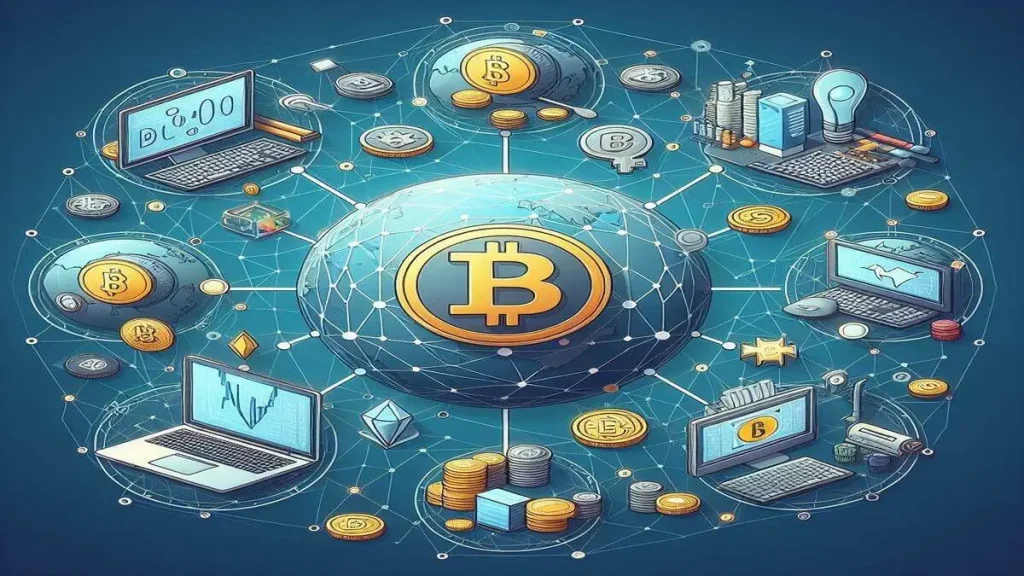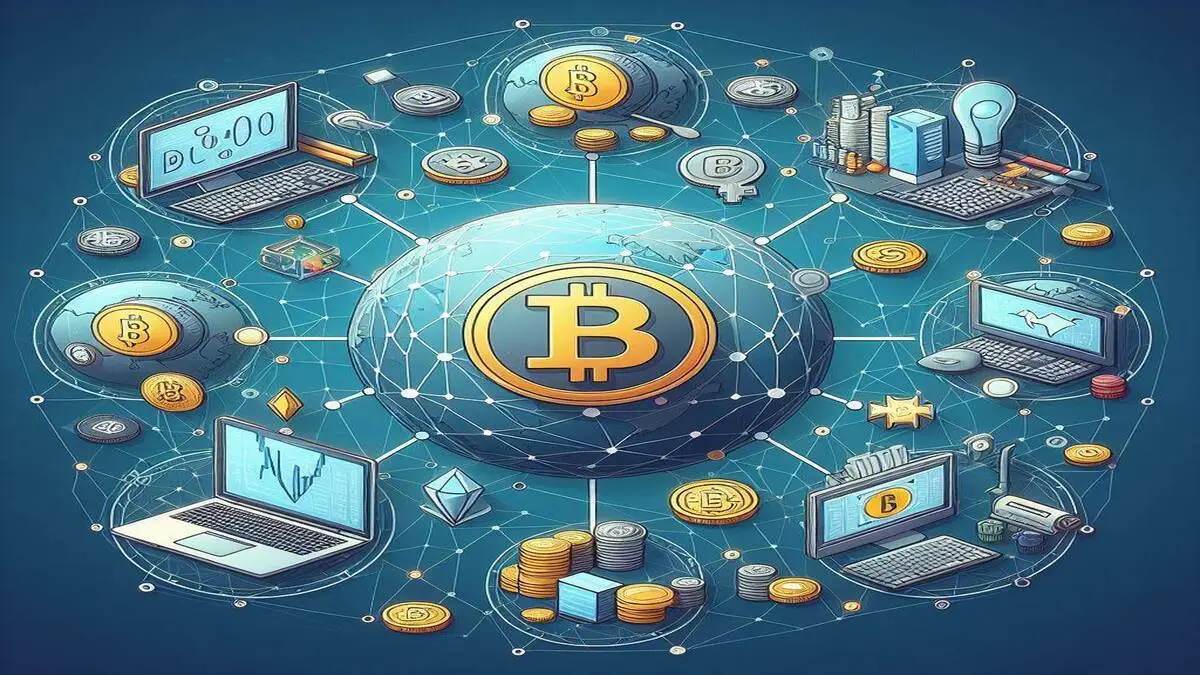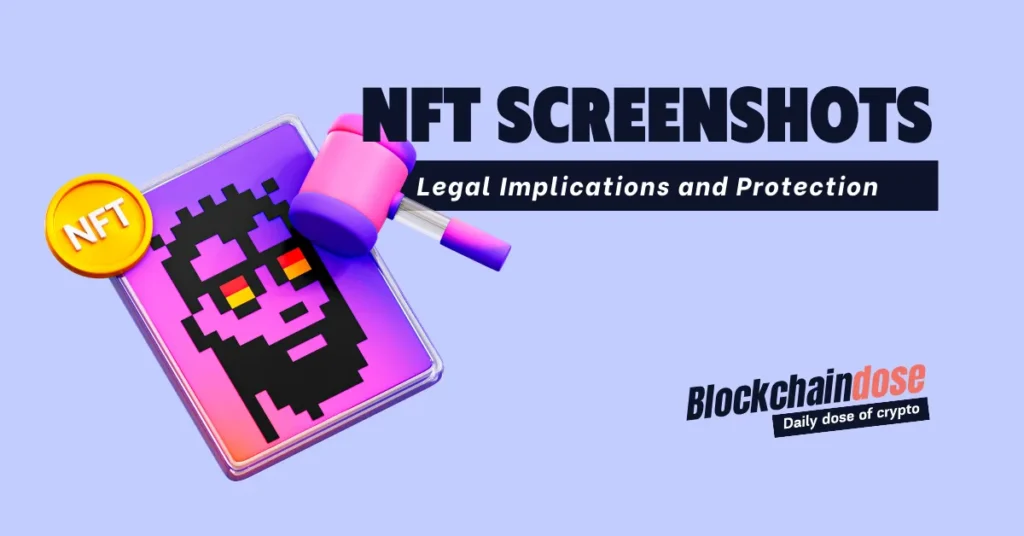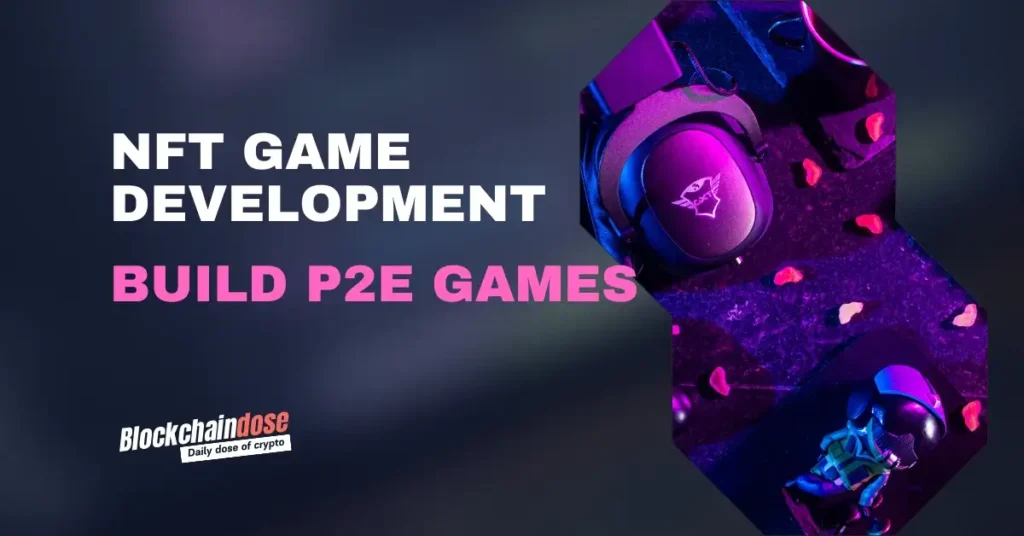In 2009, Bitcoin was launched. Born with the primary ambition of redefining the financial realm, Bitcoin grew, leading to the emergence of a larger ecosystem of blockchains. Although the coin was highly ignored in the first years, Bitcoin has grown into a trillion-dollar network. The crypto ecosystem, too, is seeing immense growth.
The primary driver behind the crypto realm’s somewhat speedy growth is the increasing number of use cases. This guide examines blockchain use cases.

Popular Blockchain Use Cases
Despite its primary role of revolutionizing the way we deal with finance, the blockchain universe has, in recent years, been able to see a wide range of applications spanning different industries. Among the most known use cases of blockchain include:
Finance Related Services
Well, there’s no question that blockchain was inherently created for finance. The primary aim was decentralizing how people handle money, removing power from centralized institutions. Among the financial use cases associated with blockchain technology include;
- Money Transfers — Bitcoin is the first crypto-focused network to introduce the idea of cryptos for money transfers. Individuals, companies, and even governments can use blockchain-based assets to transfer funds cheaper and faster.
- Cross-border transfers — Transferring funds across borders has been highly costly for ages. The presence of myriads of intermediaries lengthened the process and increased costs. Blockchain networks like Ripple and Stellar streamline the international transfer business.
- Trade finance — Blockchain networks streamline trade finance, providing space for faster processing, fewer costs, and no complexity.
Blockchain in the Internet of Things
Despite being the driver of the current technological realm, IoT suffers from significant issues, including safety concerns. However, blockchain-focused networks like HYPR, Xage Security, and others afford security for IoT-focused companies.
Moreover, blockchain provides a database where IoT devices can easily store data in an immutable manner.
Smart contracts
Blockchain-based smart contracts facilitate faster transactions that do not involve intermediaries.
General security
Identity fraud is one of the most popular issues associated with the digital realm. Every year, investors lose billions to fraud associated with identity theft. Blockchain affords a safe place to store essential details like birth dates and certificates.
The healthcare space
Blockchains can be good centres of information supply. They can help collect and disperse private information. A good example is Chronicled, a network designed to facilitate contracts connected to the distribution of pharmaceutical products.
Logistics
With many companies offering shipping and logistic services, there needs to be more communication. Blockchains enable the efficient transfer of information while enhancing data transparency.
Non-fungible tokens in gaming and art
A new class of assets was born due to the blockchain network’s capability to host smart contracts: NFTs. These assets have gained many use cases in gaming, sports, entertainment, and even art.
Governments can use blockchain technology as data collection and storage facilities.
Blockchain’s comprehensive use cases touch other industries, such as insurance, global trade, law, real estate, fashion, media, and entertainment.
Is Bitcoin Purely a Currency Without No Use Cases?
Well, NO!
In its initial years, Bitcoin’s primary role was as a currency, a medium of exchange, and a store of value. Some of the earliest adopters of Bitcoin mainly liked its role as a store of value. Likened to gold, Bitcoin has shown immense potential over the years, rising in value by thousands of percent.
As of 2024, Bitcoin is already used in hundreds, if not thousands, of businesses and institutions. El Salvador adopted the currency as a legal tender some years ago, and since then, businesses in the country have used BTC as a medium of exchange.
Bitcoin has more use scenarios. For instance, Did you know that the Bitcoin blockchain supports smart contracts? The emergence of Ordinals and BRC-20 tokens has recently seen the Bitcoin blockchain earn a use case in NFT and tokenization.
However, Bitcoin’s most prominent use case is still as a currency.
Crypto Networks with Most Use Cases
Ethereum (ETHER)
The projects with the most significant use cases in the crypto realm should be Ethereum. Launched in 2015, Ethereum developed into a substantial ecosystem hosting many applications in the crypto sphere. Its ability to host smart contracts made it a popular solution through the tokenization of assets.
Owing to its wide range of use cases, Ethereum has become among the crypto assets with the most use cases. Ethereum’s use cases include:
- Art and memorabilia — The invention of ERC 721 allowed individuals to launch art-focused tokens as NFTs.
- Gaming — NFTs based on Ethereum have hugely redefined gaming, bringing a twist enabling more efficiency and even providing income-earning solutions.
- The Finance industry — The primary aim of the birth of blockchain was to redefine the finance space, and Ethereum thrives in doing so. Ethereum-based smart contracts provide many unique banking services spanning bonds, insurance, payments, synthetic assets, etc.
- Digital ID systems — Besides smart contracts, developers can create digital identity management protocols, enabling proper identity management.
- Supply Chain Management — The global supply chain system is crippled with several issues, including poor traceability of goods and their authenticity. By using Ethereum, the supply chain can enhance trackability and reduce the chances of the forgery of products.
- Healthcare Data Management — The sensitivity of health records demands proper and secure storage. Blockchain networks like Ethereum provide a safe zone for patients’ data storage.
- DAO Governance — Ethereum blockchain offers organizations a platform to create super-decentralized and efficient governance systems.
- Cross-border settlements — Transferring money across borders is often challenging, involving high costs and slow processes. The international settlements can be more seamless using a globally used token like Ethereum.
Solana (SOL)
Like Ethereum, Solana is also a reliable host for smart contracts. Launched in March 2020, Solana was widely hailed as the ultimate Ethereum killer during its earlier days. Solana has since positioned itself as one of Ethereum’s biggest competitors in the market. Solana shares similar use cases to Ethereum. Among the use cases include:
- DeFI
- NFT
- GameFI
- DAO Governance
- Insurance
- Cross-border settlements
IOTA (MIOTA)
Third in line is the IOTA network, a blockchain-focused network launched in the crypto markets in 2015. Various publications have praised IOTA as the blockchain network with the broadest uses spanning various industries.
Deep at the heart of the IOTA network is a native token, MIOTA, which powers various applications. MIOT operates on a ledger technology called Tangle, which leverages Directed Acyclic Graphs (DAG).
IOTA is the brainchild of David Sonstebo and is designed to enable simplified data exchange between IoT devices.
Here are the famous use cases of IOTA:
- The medical industry — IOTA, and the technology backing it can completely redefine how health service providers store and manage patient data.
- Smart cities — Imagined cities, cities, and countries using smart technologies. This can help deal with daily problems like identification and tax collection in a smarter way.
- Logistics industry — Imagine more digital systems for handling packing fees and fare payments. This will bolster efficiency in the transport industry.
VET (VeChain)
Launched in 2014, Vechain is primarily a blockchain network designed to improve the supply chain. With its native token, VET, and a second one called VTHOR, the VeChain network has earned many applications to streamline the tracking process. It’s purely a blockchain for traceability. Owing to that, Vechain can help in:
- Anti-counterfeiting
- Food safety
- Health record keeping in a safe space
- Tracing of carbon emissions using IoT devices
Algo (Algorand)
The 2019-launched crypto project that leverages a pure PoS consensus built on Byzantine consensus stands tall among projects with many use scenarios. Among its use cases include;
- DeFI – Algorand avails its services to DeFI innovators to contribute to the excellence of DeFI innovation.
- Payment options — Algorand offers a wide array of payment solutions to the general crypto community.
- Identity management – Algorand has also been gaining recent applications in digital identity management.
ChainLink
Price Oracle network Chainlink is another blockchain-focused network with many use cases. Most of Chainlink’s use cases are primarily centered around crypto projects, enabling the relay of real-time data from off-chain to on-chain. Among the industries touched by Chainlink include:
- DeFI — The Chainlink network enhances info flow to the DeFI ecosystem by providing Oracle services to various Dapps. It helps provide real-time off-chain info for platforms dealing with synthetic assets, money markets, decentralized stablecoins, and yield farming.
- NFT and gaming — Chainlink enables the gaming and NFT realms using its Verifiable Randomness Function.
- Insurance, sports, gambling, financial markets, and supply chains also rely intensely on the power of ChainLink to offer good services to users.
Internet Computer
Internet Computer is a platform designed to provide independent data centers online as an alternative to corporate cloud services. As the Dfnity network’s primary token, Internet Computers’ many use scenarios have led to the coin’s colossal potential. So, what are the network’s use cases?
- Computation power for DeFI and NFTs — Internet computers function as a self-contained home for DeFI and NFT. Anyone can build Dexes, trading systems, synthetic assets, and lending networks on top of Dfinity, with ICP being a primary token.
- Another widespread use case of the Internet Computer is the provision of Enterprise IT systems. The IT systems help streamline business processes like info collection, production, manufacturing, payrolls, billings, etc.
- Internet computer networks also provide computational power for decentralized website hosting services. In essence, decentralized web hosting provides servers and domain names for web pages.
- Computation power for decentralized messaging
Final Word
This guide has looked into the top 7 blockchain networks hubbing the most use cases. Ethereum and Solana offer similar services involving smart contracts, Dapps, D,eFI, and NFTs. ChainLink is famous for its large number of real-world application solutions.
Of course, dozens of other blockchain networks are gaining use cases in different industries. These real-world use cases have contributed to the growth of blockchain from pennies to a trillion-dollar realm.




